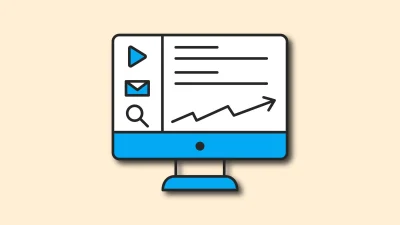Google indexing meaning: My guide to 2025

A Website indexing (also called indexing) in Google is the registration of pages for the database of search engines (in this case, Google). When a searcher performs a search, Google’s Web crawlers collect information from billions of Web pages. This information is organized in the search index.
In this article, I will tell you exactly what indexing a website is. Next, how to influence indexing by Google. Finally, I show a little more about how indexing a website in Google affects SEO.
What is indexing a website in Google?
When crawlers find a Web page, Google’s systems display the page’s content. Just like in a browser. The Google Search index includes hundreds of billions of web pages and is more than 100,000,000 GB in size.
It’s like the index in the back of a book, with an entry for every word on every web page being indexed. When a web page is indexed, Google adds it to the entries for all the words on the web page.
Getting started with a
SEO specialist?

Ralf van Veen
SEO Specialist
I improve the organic findability of businesses with 12 years of experience.
The steps: crawl, render indexing
Crawling, rendering and indexing are three fundamental steps that search engines use to discover, understand and make the content of Web sites available for searches.
| Process | Explanation |
|---|---|
| Crawling | This is the first step where search engines discover new or updated Web pages on the Internet. They do this using “crawlers” or “bots” that follow links from known Web pages to new pages(1). |
| Render | After crawling, the search engine “renders” the page to see it as a user would. This means that the search engine interprets and executes the HTML code, including JavaScript and CSS, to understand the full content and layout of the page. |
| Index | After rendering, the search engine decides whether and how to index the page. This means that the information about the page is stored in the search engine’s search index so that it can be recalled in future relevant searches. |
Tips to help Google index your website faster
Google indexes your website and only after this can you be found by searchers among the search results. It is therefore important to ensure that Google can index your website as quickly as possible(2). For example, if a website contains a noindex, Google cannot “read” the website and therefore cannot index it.
It is important to register your website in Google Search Console. This is a tool from Google. The intention is to enter the URL of the website. Here you specify that all underlying pages should also be indexed. There is a limit of 10 complete URLs per month or 50 individual pages per month (this is called indexing requests).
The second tip is to create an XML sitemap.(3) An XML sitemap provides a search engine friendly version of the Web site. This is an overview of all the pages that make up the website. Other things to consider:
- Google needs access to index pages (i.e., noindex tags);
- Don’t unnecessarily use too many pages on the website;
- Optimize the website for crawl budget;
- Optimize the structure of the website;
- Make sure all canonicals are displayed correctly;
- Provide quality content;
- make sure your website is fast (this also impacts indexing).
Getting started with a
SEO specialist?

Ralf van Veen
SEO Specialist
I improve the organic findability of businesses with 12 years of experience.
Frequently asked questions about indexing
How do I know if my website is properly indexed?
There are several ways you can verify that your website is being properly indexed by search engines:
- Use the search “site: yourwebsite.com” in Google. This gives you a list of all the pages of your website that have been indexed by Google.
- Use Google Search Console, a free tool from Google that allows you to monitor and optimize your website. Here you can see which pages of your website are indexed, how often your website appears in search results, and more.
- Check your Web server logs to see which search engines are crawling and indexing your Web site. This can help you see if errors occurred while crawling and indexing your website.
- Make sure your website has a sitemap and submit it to search engines such as Google and Bing. A sitemap gives search engines an overview of all the pages on your website and can help with crawling and indexing.
- Use Google Analytics to monitor traffic to your website. If you see organic traffic coming to your website, it means your website is indexed and displayed in search results.
By regularly checking that your website is indexed properly, you can ensure that your website performs well in search results and further increase your online presence.
When should I hire an expert when it comes to indexing?
You can hire an expert for help with indexing your website if you find that you are having problems with your website’s visibility in search results. For example, if you notice that your website is not showing up for keywords that you would expect to be relevant to your website, or if you notice that your website is not performing well in search results despite having already taken some optimization steps.
An expert can help you analyze your Web site and identify any technical issues that may hinder indexing. These could include problems with navigation structure, load time, canonical tags or crawl errors.
An expert can also help optimize your website’s content and meta tags to increase relevance to user searches. In addition, an expert can offer advice on how to increase your website’s visibility in search results through link building, social media marketing, and other digital marketing techniques.
In short, if you find that your website is not being indexed properly, or if you need help optimizing your website for search engines, engaging an expert can be a good choice to make your website more visible in search results and increase your online presence.
Does better indexing increase my website’s revenue?
Better indexing of your website can help increase your website’s revenue because it can increase your website’s visibility and findability in search results. When your website is better indexed and appears higher in search results, it increases the chances that potential customers will find and visit your website, which can lead to more traffic and more sales opportunities.
Moreover, better indexing of your website can contribute to the reliability and authority of your website, which can contribute to sales. If search engines view your website as relevant and valuable, users are likely to perceive it as such and have more confidence in your products or services, which can lead to more sales.
However, it is important to emphasize that better indexing does not guarantee higher sales. There are many factors that affect your website sales, including the quality of your products or services, pricing, competition and your marketing strategy. However, better indexing can help increase traffic and sales opportunities, which can lead to increased sales.






